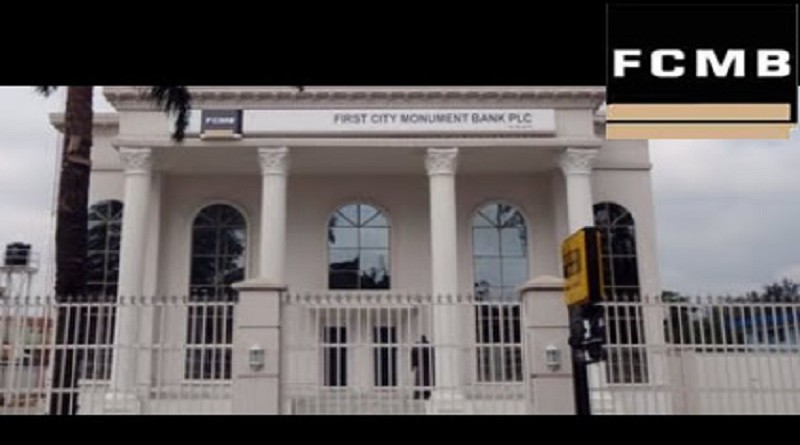FCMB Insists on Enhanced Synergy to Combat Financial Crimes
The Managing Director of First City Monument Bank (FCMB), Mr. Adam Nuru, has called for vigilance and concerted efforts among stakeholders in the Banking industry, towards combatting financial crimes, cyber and other-related crimes. The Chief Executive said financial crimes, particularly money laundering and terrorism financing are increasingly becoming pervasive in the society, and therefore requires combined effort and effective regulation to decisively deal with them.
Mr. Nuru stated this while declaring open, the 44th quarterly meeting of the Association of Chief Audit Executives of Banks in Nigeria (ACAEBIN), hosted by FCMB in Lagos on December 5, 2019. The meeting of ACAEBIN, which is a sub-committee of the Bankers’ Committee of the Central Bank of Nigeria (CBN), focused on the effects of money laundering and terrorism financing, non-compliance and sanctions for such crimes. The meeting considered understanding of the role and expectations of internal auditors in combating the financing of terrorism, enhancing the Central Bank of Nigeria, CBN’s anti-money laundering administrative sanctions regime and how technology can be a major ally in combating money laundering and terrorism financing.
Speaking on the theme, “The Role of Internal Audit in Combating the Financing of Terrorism and enhancing CBN Anti money Laundering Administrative Sanctions Regime”, Mr. Nuru stated that though stakeholders have continually reviewed strategies and initiated policies towards combating money laundering and terrorism financing worldwide, there was more to be done particularly in the areas of corporate governance, due diligence, risk and compliance, to checkmate the menace.
According to him, ‘’recent improvements in technology in the banking industry globally, has also exacerbated the scope and reach of money laundering. With advancements, especially in digital financial services, money launderers have now developed more complex and intricate arrangements outside of the formal financial services industry, making use of various mechanisms in designated Non-Financial Institutions and sectors. There are possibilities in their use of digital products such as cryptocurrencies to move illicit funds across borders at breakneck speed, creating complex and layered processes that are increasingly real-time and make it difficult to monitor and detect, using the conventional means. We will see how technology has played the role of a transformative enabler, if we do a synopsis of the evolution of
financial services in the last three decades. The paradigm shift has also given rise to new channels and methods for money laundering and terrorism financing’’.
According to the International Monetary Fund (IMF), the scale of money laundering globally, is estimated to be between 2 and 5% of World Gross Domestic Product at the barest minimum, translating into a range of $590 billion to $2 trillion of laundered money every year. And it is just about 1% of such illicit inflows that is confiscated by the Authorities. A recent report by the Economic and Financial Crimes Commission (EFCC) also revealed that as much as $129 billion dollars, has been transferred illicitly out of Nigeria in the last ten years.
The FCMB CEO noted that, ‘’while the figures may not be necessarily indicative of the proceeds of crime, it however exposes the vulnerabilities associated with efforts at combating money laundering in Nigeria and the West African sub-region. This is mainly because of our cash-based economies. Overall, the after effects of money laundering are without doubt, detrimental to the economy and the Nation’s reputation in all ramifications. Its effective combat has become an enormous task associated with substantial cost and risks, not just to individuals, but to organisations as well as governments, to mention a few”.
Mr. Nuru commended the Federal Government, Central Bank of Nigeria (CBN) and Banks for responding with various counter measures, aimed at preventing and eradicating the consequential impact of financial crimes, including the Anti-Money Laundering and Combating the Financing of Terrorism (AML/CFT) Administrative Sanctions Regulations 2018, among other legislations and actions.
He also expressed gratitude to the Association of Chief Audit Executives of Banks in Nigeria (ACAEBIN) for fostering and promoting co-operation among Chief Audit Executives of Banks, competence and capacity building, ethical standards and professional behaviour in the industry.
In his speech, the President of ACAEBIN, Mr. Yinka Tiamiyu, said, ‘’the theme of the meeting could not have come at a better time when the apex bank has commenced full implementation of the sanctions prescribed. As Auditors and valued stakeholders, we have a very critical role to play to ensure that our respective organizations adhere strictly to this policy. The Central Bank of Nigeria through the Payment Systems Management Department is doing a lot especially as it concerns the Vision 2030 Payment Systems Management Framework’’.
He disclosed that as part of the Association’s training for members, ‘’the second stream of our capacity development programme for Internal Auditors aimed at equipping our junior colleagues with the requisite skills to enable them become more effective and efficient in the discharge of their duties held within the same period. We are also organizing the training of our colleagues scheduled to hold in Mauritius sometime in May 2020’’.




